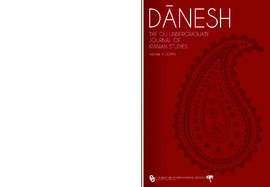| dc.contributor.editor | Kuyon, Kayleigh | |
| dc.contributor.editor | Standley, Corey | |
| dc.contributor.editor | Oberlitner, Adam | |
| dc.contributor.editor | Nazar, Jessamine | |
| dc.contributor.editor | Progler, Chris | |
| dc.contributor.editor | Albrecht, Emma | |
| dc.contributor.editor | Kayali, Sarah | |
| dc.contributor.editor | Ashbaker, Bailey | |
| dc.contributor.editor | Keaton, Joni | |
| dc.creator | Oberlitner, Adam | |
| dc.date.accessioned | 2019-03-08T22:46:00Z | |
| dc.date.accessioned | 2021-04-14T15:38:01Z | |
| dc.date.available | 2019-03-08T22:46:00Z | |
| dc.date.available | 2021-04-14T15:38:01Z | |
| dc.date.issued | 2019-06 | |
| dc.identifier.uri | https://hdl.handle.net/11244.46/1530 | |
| dc.description.abstract | On November 13, 2005, the Iranian daily newspaper Kayhan published a story about the public execution of two young men named Mokhtar and Ali. The charge that brought them to the gallows of Shahid Bahonar Square, alleges international advocacy organization Human Rights Watch (HRW), was lavat, a word loosely translated by many as “sodomy,” which refers to criminalized sexual acts between men. As is often the case, the hangings provoked condemnations from such human rights organizations as HRW, but the agitation over these hangings, and several other such cases that year, effected no marked change in policy, neither immediately nor over the course of the following years. There is a widespread Western perception of Iran as viciously anti-queer and without reservation in its anti-queerness—a reputation it continues to cultivate, one might argue, as Amnesty International's 2017-2018 report on the country concludes with “some same-sex conduct [remains] punishable by death.” However, keeping this in mind so as not to trivialize the state-sanctioned violence faced by gay Iranian men and women, this all-encompassing conclusion is short-sighted. | |
| dc.format.extent | 16 pages | |
| dc.format.extent | 904,586 bytes | |
| dc.format.medium | application.pdf | |
| dc.language | en | |
| dc.relation.ispartofseries | Danesh ; 4 (2019) | |
| dc.relation.requires | Adobe Acrobat Reader | |
| dc.rights | © 2019, University of Oklahoma. | |
| dc.subject.lcsh | Iran -- Civilization -- Periodicals | |
| dc.subject.lcsh | Iran -- History -- Periodicals | |
| dc.title | Queer Theology: Theological, Theocratic, and Secular Influences on Iran's Relationship with Transgender Bodies | |
| dc.type | Document | |
| dc.type | text | |
| dc.contributor.sponsor | Farzaneh Center for Iranian and Persian Gulf Studies | |
| dc.description.undergraduate | undergraduate | |
